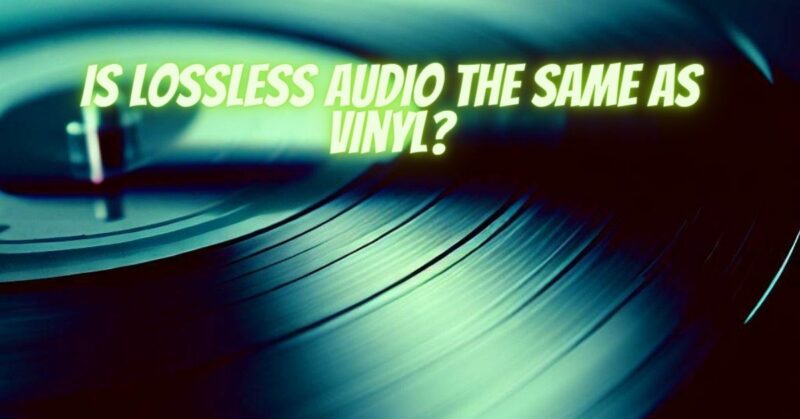In the world of audio enthusiasts, the debate between lossless digital audio and vinyl records has been ongoing for years. Lossless audio formats, such as FLAC (Free Lossless Audio Codec), promise the preservation of audio quality without any data compression, while vinyl records are cherished for their warm and nostalgic sound. In this article, we will explore the key differences between lossless audio and vinyl records and discuss whether lossless audio truly replicates the unique charm of vinyl.
Lossless Audio – Preserving Digital Fidelity:
Lossless audio formats, like FLAC, are designed to retain the original audio quality without any loss of data during compression. When audio is converted into a lossless format, it remains bit-perfect, ensuring that no audio information is discarded. This results in a digital audio file that accurately represents the original recording.
Lossless audio formats offer several advantages, including:
- High-Quality Reproduction: Lossless audio provides high fidelity, offering audio quality nearly indistinguishable from the original recording.
- Convenient Storage and Playback: Lossless audio files allow easy storage and playback on digital devices, making them accessible and portable.
- Metadata Support: Lossless audio formats often support metadata, allowing users to add album artwork, track information, and more.
Vinyl Records – The Charm of Analog Sound:
Vinyl records, on the other hand, offer a unique and nostalgic sound that many audiophiles find captivating. Vinyl playback involves an analog process, where a stylus reads the physical grooves on the record, converting the vibrations into an electrical signal. This signal is then amplified by the phono preamp and played through speakers.
The appeal of vinyl records lies in:
- Warm and Rich Sound: Vinyl records are known for their warm and rich sound, often described as having a more natural and organic character.
- Analog “Imperfections”: Vinyl records may have slight pops, crackles, and surface noise, which some listeners find endearing, as it adds a sense of authenticity and nostalgia to the listening experience.
- Physical Interaction: Handling vinyl records, carefully placing the stylus, and engaging with the artwork contribute to a more tactile and intimate listening experience.
Is Lossless Audio the Same as Vinyl?
While lossless audio formats aim to preserve the digital audio quality, they do not fully replicate the unique characteristics of vinyl records. Vinyl’s warm sound, analog imperfections, and physical interaction create an experience that goes beyond mere audio fidelity.
For many audiophiles, the charm of vinyl lies in its distinct sound and nostalgic appeal. Lossless audio provides exceptional audio quality, but it lacks the analog character and tactile experience that vinyl enthusiasts cherish.
Lossless audio formats offer exceptional audio quality and are a convenient way to enjoy high-fidelity music on digital devices. However, the charm and unique appeal of vinyl records lie in their warm, nostalgic sound, analog imperfections, and physical interaction. While lossless audio can provide an accurate representation of the original recording, it does not fully replicate the immersive and emotive experience that vinyl records offer.
The choice between lossless audio and vinyl ultimately comes down to personal preference and the desire for a specific audio experience. Both have their merits and enthusiasts, and each can bring joy and satisfaction to music lovers in their own way.


